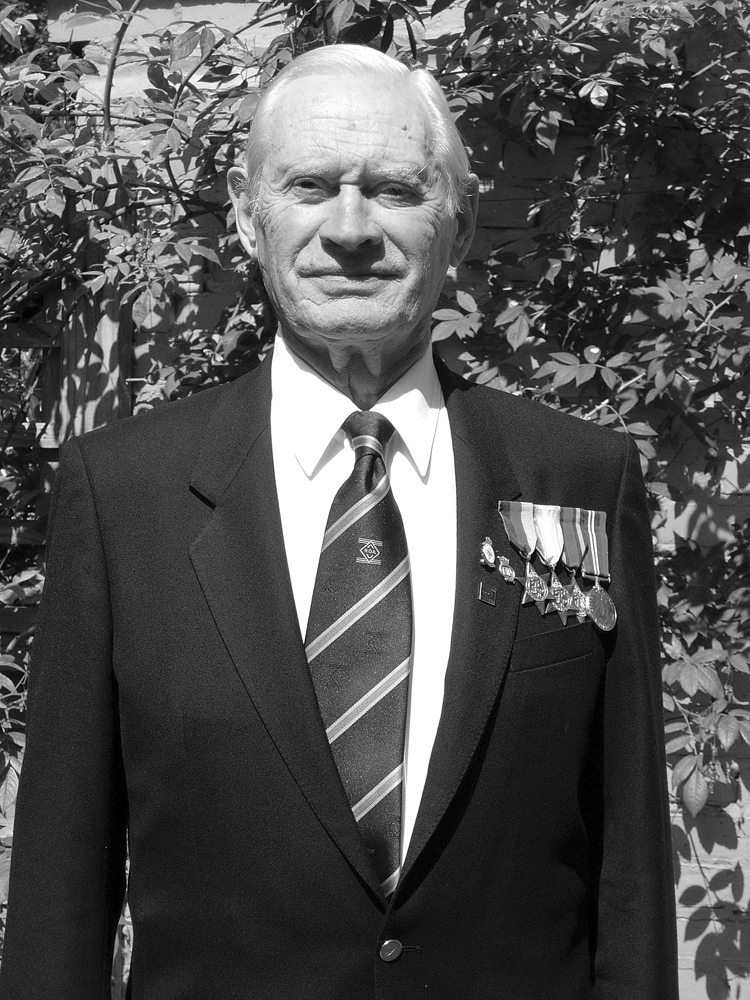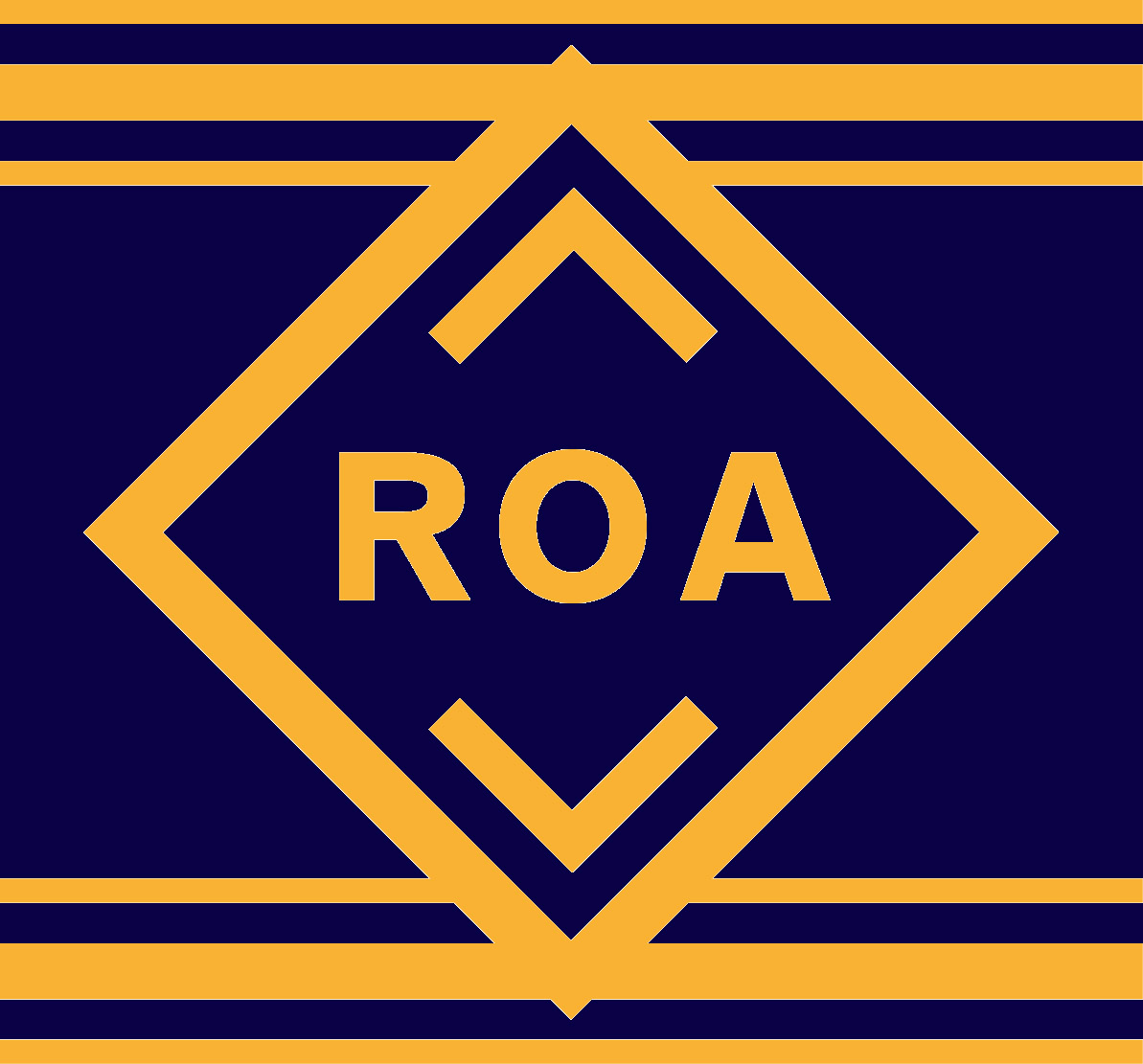2 Memories of Albert written by Brian Cotton, Life President of the ROA.
It is with the deepest regret that we announce that Albert Owings, Commodore of The Radio Officers’ Association, died at his home on the Wirral in early April. Although not unexpected, his passing was still a shock to me as he was one of my dearest friends: I had known him for sixty-five years. So you will understand that I felt enormously privileged when I was asked to lead the tributes at his funeral.
On the day, I found myself speaking before a congregation that filled the funerary chapel. This was hardly a surprise: I knew Albert was very popular in his community and the various organisations to which he belonged, including the choirs and operatic societies. I was especially glad to see friends from the Association and Riversdale College there in goodly numbers and I am sure he would have been pleased by that too, since he had immense loyalty towards both organisations.
I chose to pay my tribute by relating anecdotes of my interactions with Albert that I felt would find a place in the memories of members of the congregation. I have chosen to do much the same in this Tribute in the hope that you will also relate to what I say. And do read the piece in this issue by Willie Williamson giving Albert’s history as a radio officer, our accounts are complementary.
My first encounter with Albert was as a new marine radio student at Riversdale in 1955. I had stumbled onto the course with little idea about what marine radio entailed or even what a radio officer looked like. On my first day I sat with others in that embarrassed and nervous silence that attends all new students, worsened perhaps by the unfamiliar environment of the morse room. We had just taken our seats when the door opened and Albert came in with that measured and dignified walk of his – it was almost a glide.
True to form, Albert just got on with the job and ere long we were testing our own skills and trying to emulate the superb style that was his own. He left me with much to wish to emulate, his quality morse, of course, but also his quiet dignity and composure (what Willie Williamson refers to as his ‘gentlemanly demeanour’). With my experience of merchant seamen being no more than watching scraps outside the American Bar in Lime Street on Saturday nights that was reassuring. I got near with the morse, I am not so sure about the behaviour!
For the rest of the course and when I returned some years later for my First Class Certificate, he never changed his methods and his personality. Later, I joined the teaching staff at Riversdale and Albert was at hand on my first day to give me the most cordial welcome and useful guidance for my classroom performances. It was then that he became a friend as well as a guide and mentor.
Another characteristic I remember in Albert was his generosity. I have the story that years ago when I had no car Pam, my wife to be, was looking for accommodation on the Wirral. We mentioned our struggles with this to Albert when at his house for a social occasion and he immediately pressed his car keys into my hand. He said ‘go and find her a place and don’t come back until you have found her somewhere.’ I think you will agree that this was an extraordinary act of generosity – not one I would emulate, I am sure! It was not long after that that Albert became a family friend and it was to stay like that for the rest of his long life.
I had the privilege of escorting Albert to a number of functions and they all gave rise to incident. I was with him on the Association jaunt to the ssGreat Britainwhen he slipped away from me to persuade the pianist in the saloon to accompany him in a rendition of ‘I’ll take you home again Kathleen.’ The visitors ambling through that space stopped to listen and applaud, so did I, it was my mother’s favourite piece.
Another occasion was when I wangled him an honoured place at the Battle of the Atlantic Commemorations in Liverpool Cathedral. It was there that he charmed everyone including Dan Snow with a television interview and the Princess Royal in the line-up, (causing both to overrun their allotted times). Later I took him down to the Town Hall, to my surprise he had never been inside there before, and tea with the Mayor. The only person I felt sorry for on that day there was the BBC cameraman standing next to Albert’s seat. Teacher to his fingertips, Albert kept jumping up and advising him about the inner workings of his camera and offering tips in its operation!
Albert was Riversdale’s Principal Lecturer in charge of radio and television courses and highly regarded by ‘the trade.’ Most television sets even in the late seventies were rented and we had classes for the servicemen every day and every evening. Albert was always there in smooth command. He was undoubtedly a leader in that academic field: one of the rental companies loaned Riversdale a prototype colour television set (the first on Merseyside indeed) and asked Albert to find how it worked, and devise teaching and fault-finding techniques for their staff. Some time later, Albert told us all to assemble in one of the radio and television workshops in our lunchtime. I remember so clearly how he took up a piece of chalk and starting on the left hand side of the blackboard drew out the whole of the colour set from memory, pausing to explain circuitry and even the physics as he went. As that ‘lunch-hour’ drew to a close, he finished and said – ‘that gentlemen, is magic.’ It certainly was and I have often reflected on Albert’s words when I switch on my own set.
Some of you will have met Gabrielle, Albert’s niece and a very good friend of my wife and myself for many years. She was very loyal to Albert over the years visiting him regularly and after his widowhood she saw to it that he was well provisioned. She also stayed tending to his needs and comforting him during his last dark days. We are immensely grateful for all she did for our dear colleague and that earlier she brought Albert to Association functions. It is our intention to make Gabrielle an honorary member of the Association to show our everlasting gratitude.
Willie Williamson in his article has revealed what an awful war Albert had. Others know too that Albert was widowed three times. It always was a wonder to many of us that he was such a composed and quiet individual. He had an immense strength of character and as I say dignity, generosity and loyalty. We the members of the Radio Officers’ Association salute him and are thankful that we knew him.
As a mark of respect to Albert the Association has retired the title of Commodore.
May he rest in eternal peace.


